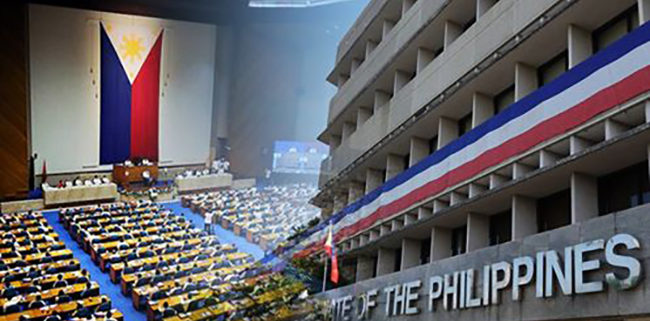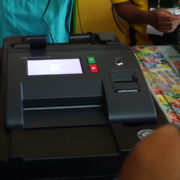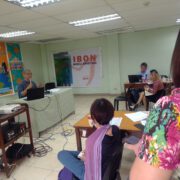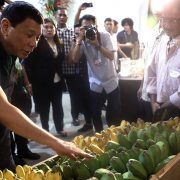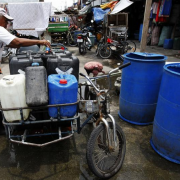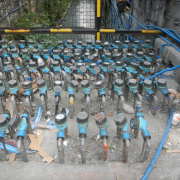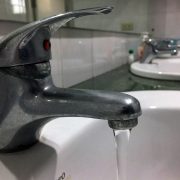2019 midterm elections results: Harsher policies ahead
Administration-backed bets dominated the 2019 midterm elections especially in the Senate. The Duterte administration will certainly fast track its priority neoliberal policies as soon as the 18th Congress opens. It already used its super-majority in the 17th Congress to pass socioeconomic measures aggravating the country’s jobs crisis, poverty, and underdevelopment. More and harsher ones loom with many elected officials unlikely to favor any policy reversals from neoliberalism.
Questionable results
The electoral success of administration-backed candidates and party-list groups was controversial. The 2019 midterm elections were marred by massive vote-buying, widespread breakdown of voting machines, and suspicious delays in the transmission of results. The Duterte administration also visibly used public resources not just to support its preferred candidates but also to sabotage the campaigns of its opposition. Progressive candidates, party-list groups, and their supporters were subjected to particularly virulent attack.
Duterte-endorsed Hugpong ng Pagbabago (Faction for Change) candidates took nine of 12 senatorial slots: Cynthia Villar, richest senator and wife of the country’s richest oligarch; Taguig representative Pia Cayetano; reelectionist senator Sonny Angara, son of the late senator Ed Angara; reelectionist and former senate president Koko Pimentel, son of former senator Aquilino Pimentel; Special Assistant to the President Christopher “Bong” Go; former chief of police Ronald “Bato” dela Rosa; Imee Marcos, eldest daughter of ousted dictator Ferdinand Marcos; jailed plunderer former senator Ramon “Bong” Revilla; and former Metro Manila Development Authority (MMDA) chief and presidential political adviser Francis Tolentino.
Many winning party-list groups are either linked with or outrightly backed by the administration: the Sara Duterte-backed Anti-Crime and Terrorism Community Involvement and Support (ACT-CIS) party-list; Duterte ally Gloria Arroyo-backed AKO Bicol Political Party (AKB); richest multi-billionaire congressman Michael Romero’s One Patriotic Coalition of Marginalized Nationals (1 PACMAN); Ilocos Norte warlord Rudy Farinas’ Probinsyano Ako; and Duterte-endorsed Marino, whose nominees are Davao-based businessmen. Election watchdog Kontra Daya described these groups as ”dubious and making a mockery of the party-list system”.
Meanwhile, the Makabayan bloc of progressive party-list groups defied systematic state-sponsored attacks and vilification to take six seats in the 18th Congress, only one less than it got in the last elections. Bayan Muna (BM) obtained over 1.1 million votes to get three seats for the first time since 2007. Gabriela Women’s Party (GWP), ACT Teachers Party, and Kabataan Party-list all won one seat each. The last member of the bloc, Anakpawis, whose farmer- and worker-dominated machinery suffered violent attacks and killings however failed to retain its seat in the House of Representatives (HOR).
The systematic state-sponsored attacks on progressive candidates and groups to prevent them from being elected into government exposes the flawed democracy of Philippine elections. Military, police and local government officials vilified Leftist candidates, sabotaged their campaigns and political alliances, and attacked their party-list machinery. This is another manifestation of government’s intolerance of activists advocating for genuine change and raising public awareness on issues and proposing genuine solutions.
Looming sell-out and repression
The overwhelming number of winning candidates are from the same political parties, political families and elite interests behind the system of anti-people and anti-development laws in the country. They are likely to reprise or keep on with more of the same to the further detriment of the economy.
Among the exclusionary measures passed by the 17th Congress under the Duterte administration is the Tax Reform for Acceleration and Inclusion (TRAIN) law, which lowered personal income, estate, and donor taxes on the rich while burdening the poorest majority with higher consumption taxes. Another measure is the Rice Tariffication Law which liberalized rice trade, making the country over-reliant on a narrow global market for its staple food, amid still merely token production support for millions of rice farmers. There is also the extension of Martial Law in Mindanao, despite the Commission on Human Rights (CHR) already noting rampant human rights violations in the region.
Senate president Vicente Sotto III said that the Senate will take up amendments to the Public Services Act (PSA) and the Human Security Act (HSA) in the closing days of the 17th Congress until June. The amendments to the PSA open critical public utilities such as power, telecommunications, and transportation to excessive foreign ownership and control. This compromises national security and civil defense, on top of making vital public services expensive and inaccessible especially for lower income families.
Amendments to the HSA meanwhile threaten to further restrict civil liberties and human rights. As it is, the Duterte administration is already coming down hard on supposed drug personalities and alleged ‘terrorists’ and supporters in gross disregard of due process and the law. Critics fear that HSA amendments will only give the government freer hand to crack down on the political opposition and other perceived threats to its rule.
The electoral results will also likely embolden the Duterte administration to push for Charter change (Cha-cha) serving its narrow political agenda. Amendments to the 1987 Philippine Constitution focusing on federalism and full economic liberalization remains priority legislation for the Duterte government.
From the time of Fidel Ramos to the current administration, various efforts for Cha-cha were consistent in seeking to lift restrictions on foreign exploitation of natural resources and on foreign ownership of land, public utilities, education institutions, and mass media and advertising . The rationale is that attracting foreign investments will supposedly be the key for economic development.
The same rationale is behind other bills considered important by Malacañang pending in Senate committees, such as the National Land Use Plan, supposed contractualization ban, and the Tax Reform for Attracting Better and Higher Quality Opportunities (TRABAHO). Aside from pushing PSA amendments, the National Economic and Development Authority (NEDA) reportedly also plans to recommend the following to the Legislative-Executive Development Advisory Council (LEDAC): sugar industry liberalization, creating a Department of Water, and exempting government’s line-itemized projects from the election ban.
All these seek to make it easier to do business and profit from public utilities, land and natural resources, and building infrastructure. The TRABAHO bill is also a misnomer because its real focus on lowering corporate taxes and rationalizing incentives may, if anything, actually even squeeze employment and workers’ salaries. Even the supposed law ending contractualization may end up being a smoke-screen that creates the conditions for legitimizing contractual arrangements rather than ending this.
Instead of bringing development, Cha-cha and the rest of the Duterte administration’s priority bills are likely to worsen the effects of the business-biased, neoliberal policies of the past decades. The economy today is characterized by shrinking agriculture and Filipino manufacturing, dismal jobs generation, and chronic poverty. This cannot be cured by further opening up to foreign capital and without the state more actively intervening in the economy for strategic industrial development, redistributing income and wealth, and providing needed social services.
Keeping watch
The executive, legislative, and judicial branches of government are overpopulated by administration allies or otherwise intimidated into passivity. The manufactured results of the midterm polls strengthens the hand of the Duterte administration and its elite supporters to implement self-serving economic and political measures at the expense of the Filipino public.
More than ever, the country’s patrimony and sovereignty and the people’s rights and welfare are at stake.
Also more than ever, the steadfast resistance of organized basic sectors is critical. The decades-strong social movement is the most reliable bulwark against the distortion of the economy to serve narrow elite interests. The progressives in Congress and their allies in government, down to the local level, can help push an alternative economic agenda. Domestic agriculture and Filipino industry can be developed, the environment protected, people’s welfare upheld, and economic independence attained. – With report from Casey Salamanca

